Acne scars are more than just marks on the skin; they can impact self-confidence, mental health, and overall quality of life. According to the National Library of Medicine, nearly 80% of people between the ages of 11 and 30 experience acne, and a significant portion develop scars after their breakouts heal.
Another study published in the Journal of Clinical and Aesthetic Dermatology highlights that acne scars can last for years if not treated properly, making early intervention crucial.
While medical treatments such as chemical peels, laser therapy, and microneedling are effective, many people turn to natural home remedies as a first step. These remedies, often passed down through generations, use simple ingredients like aloe vera, honey, and turmeric that are both affordable and skin-friendly.
In this blog, we’ll explore effective home remedies for how to treat acne scars, how they work, and why they remain a trusted choice even today.
What Are Acne Scars?
Acne scars develop when breakouts damage the skin’s deeper layers. When the body repairs the wound, it may produce too much or too little collagen, leading to raised or depressed marks. Some common types of acne scars include:
1. Atrophic scars
These are shallow dents or depressions that form when the skin doesn’t produce enough collagen during healing. They are common after severe acne and can give the skin an uneven texture.
2. Hypertrophic scars
These scars are thick, raised, and firm, caused by excess collagen production while the skin is repairing. They usually remain within the boundaries of the original acne spot.
3. Post-inflammatory hyperpigmentation
These are flat, dark spots that remain after acne heals, caused by excess melanin production. Unlike true scars, they usually fade over time with proper skincare or treatment.
Effective Home Remedies for Acne Scars
Acne scars can often be stubborn and affect both appearance and confidence. While medical treatments exist, many people look for natural remedies that are safe, effective, and affordable. Below are some of the most beneficial home-based treatments for acne scars, along with their benefits and practical usage tips.
Aloe Vera – Nature’s Healing Gel
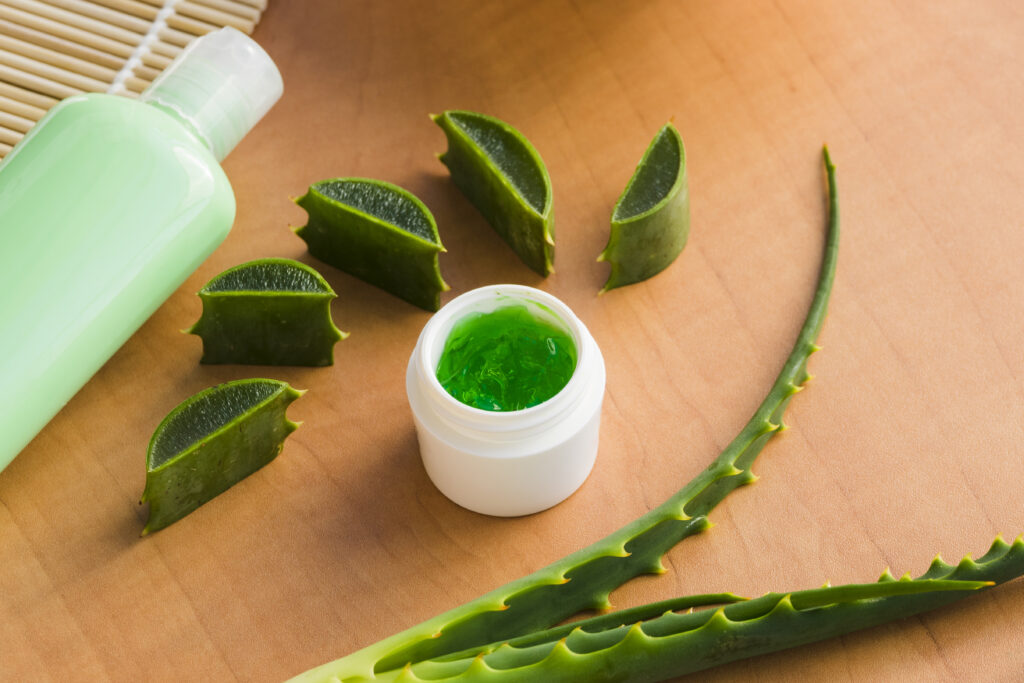
Aloe vera is widely known for its soothing, anti-inflammatory, and healing properties. It helps hydrate the skin, calm redness, and boost collagen production, which makes it effective in reducing the appearance of acne scars over time. Its antioxidants also protect the skin from further damage.
How to Use:
Extract fresh aloe vera gel from the leaf and apply directly to the scarred area. Leave it on for 30 minutes before rinsing off. For best results, apply daily.
Lemon Juice – Natural Skin Brightener

Lemon juice contains Vitamin C and citric acid, which naturally lighten dark spots and acne scars. Vitamin C promotes collagen formation, making the skin look smoother and more even-toned. However, because lemon is acidic, it must be used carefully to avoid irritation.
How to Use:
Mix equal parts of lemon juice and water, apply with a cotton ball to scars, and rinse after 10–15 minutes. Always use sunscreen afterward, as lemon can increase sun sensitivity.
Honey – A Natural Moisturizer and Healer
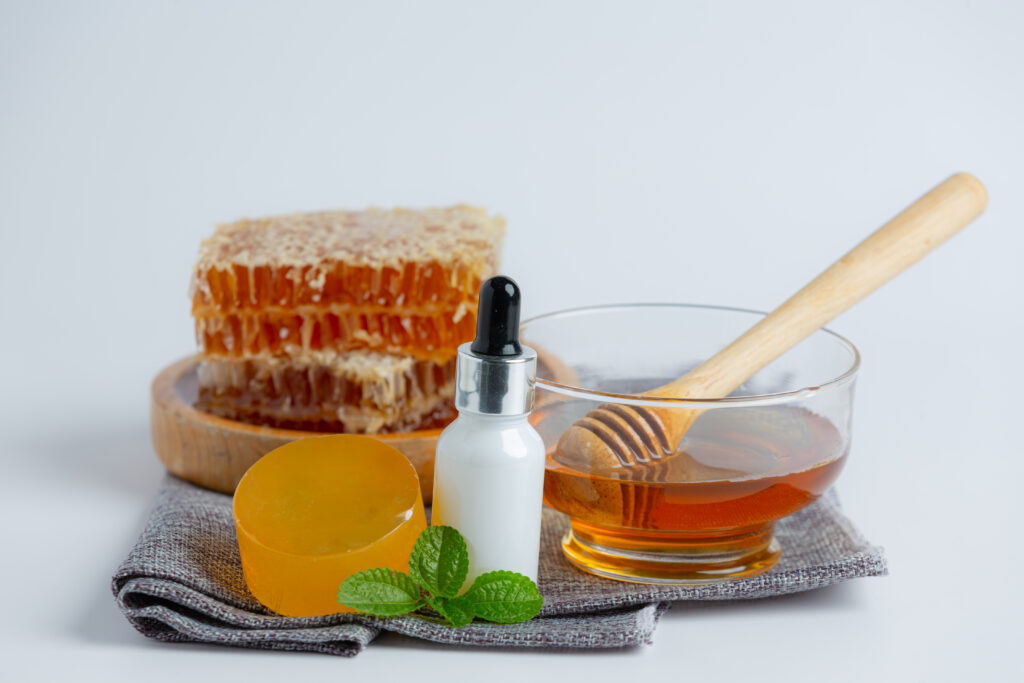
Honey is packed with antioxidants, enzymes, and antibacterial compounds that make it a gentle yet effective remedy for scars. It moisturizes deeply, promotes tissue regeneration, and fades old marks gradually.
How to Use:
Apply raw organic honey directly to scars as a mask and leave it on for 20–30 minutes. Repeat 2–3 times a week for visible improvement.
Coconut Oil – Nourishment for Skin Repair
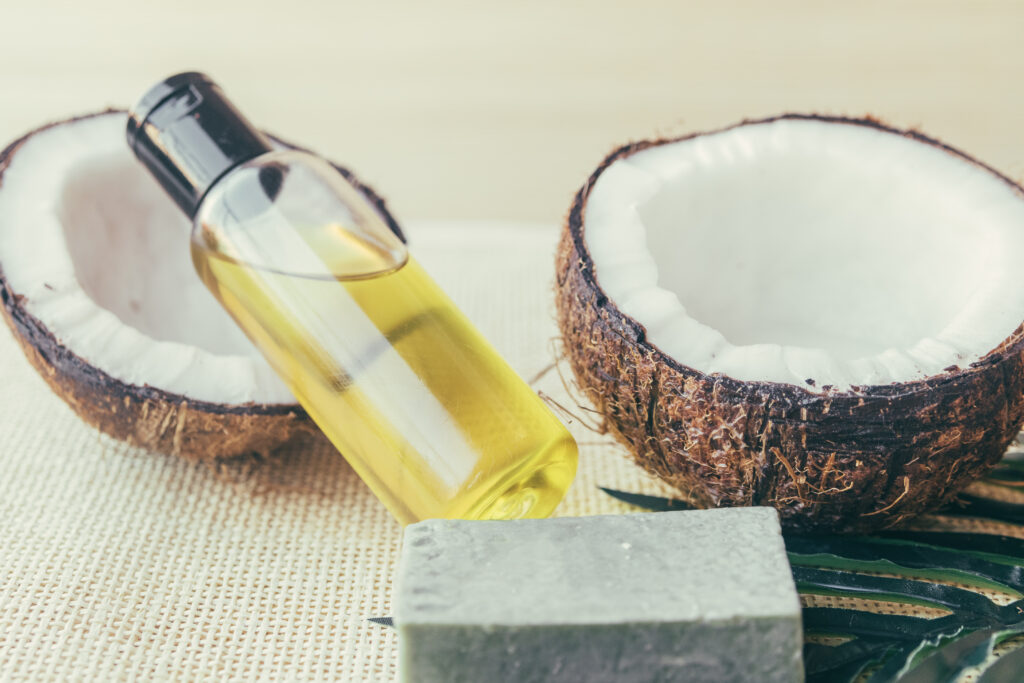
Coconut oil is rich in vitamin E, fatty acids, and antioxidants, which deeply nourish the skin and encourage healing of damaged tissue. It can soften hardened scar tissue and improve skin elasticity. However, those with oily or acne-prone skin should use it sparingly, as it may clog pores.
How to Use:
Warm a small amount of virgin coconut oil and gently massage it into scarred areas for 5–10 minutes. Leave it overnight and wash off in the morning.
Turmeric – The Golden Healer
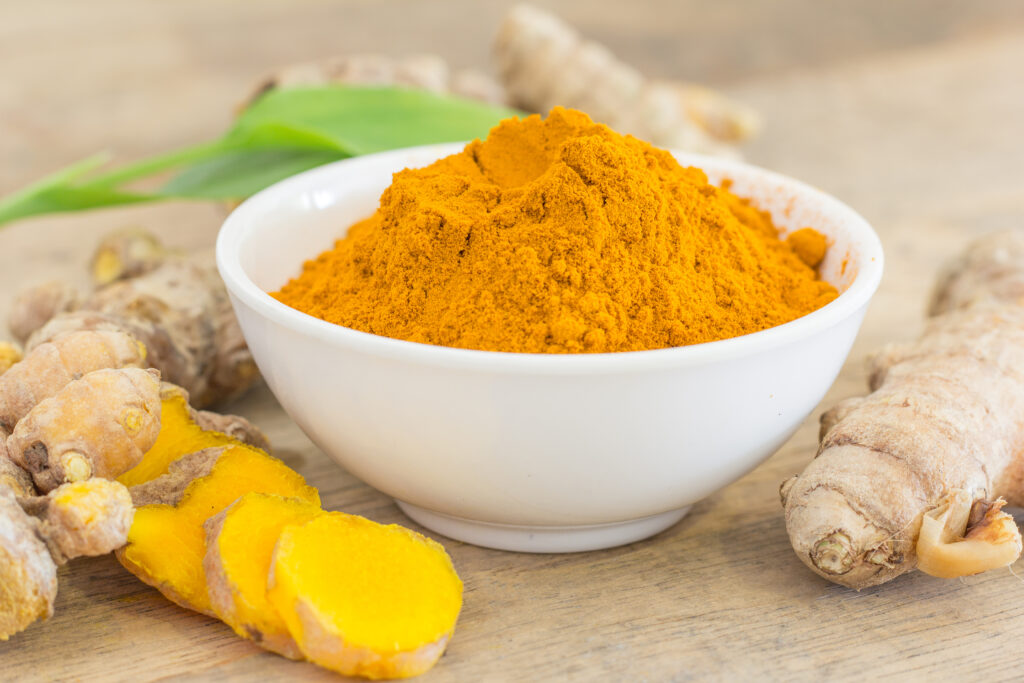
Turmeric is known for its anti-inflammatory and antibacterial properties, which help reduce redness, swelling, and discoloration caused by acne scars. Curcumin, its active compound, also brightens the skin and boosts healing.
How to Use
Mix 1 teaspoon of turmeric powder with honey or yogurt to form a paste. Apply to scars for 15–20 minutes before rinsing off. Repeat 2–3 times weekly.
Apple Cider Vinegar (ACV) – Natural Exfoliant
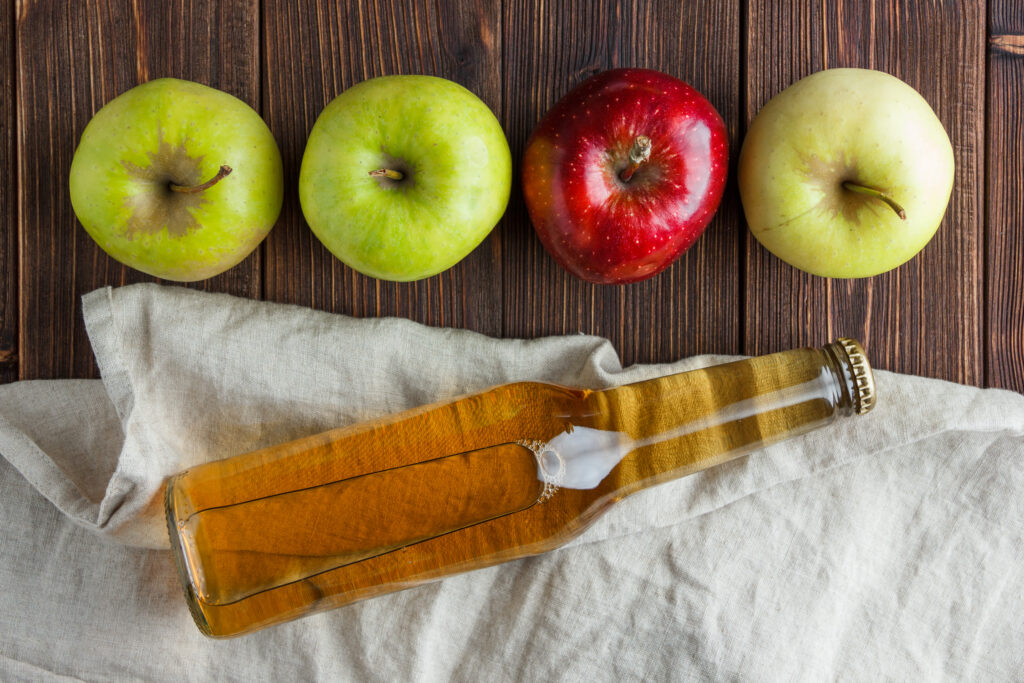
Apple cider vinegar contains acetic acid and natural enzymes that help balance the skin’s pH and exfoliate dead skin cells. This encourages skin regeneration and lightens dark scars.
How to Use:
Dilute 1 part ACV with 3 parts water. Apply with a cotton ball to scars for 5–10 minutes, then rinse off. Use 2–3 times a week, but avoid it if you have sensitive skin.
Tea Tree Oil – Powerful Antimicrobial Remedy
Tea tree oil is a natural antiseptic with anti-inflammatory and antimicrobial benefits, making it effective in reducing redness, preventing new breakouts, and healing scars.
How to Use:
Mix a few drops of tea tree oil with a carrier oil (like coconut or jojoba oil). Apply directly to scars using a cotton swab. Use it once daily.
Potato Juice – Natural Skin Lightener
Potatoes contain vitamins, minerals, and natural bleaching agents that help reduce hyperpigmentation and brighten the skin. They also contain enzymes that promote skin healing and renewal.
How to Use:
Grate a potato, extract its juice, and apply to scars using a cotton ball. Leave it on for 20 minutes, then rinse. You can also rub raw potato slices on affected areas.
Baking Soda – Gentle Exfoliator
Baking soda works as a mild exfoliant, removing dead skin cells and stimulating skin regeneration. It helps even out texture and may lighten shallow scars over time.
How to Use:
Mix 1 teaspoon of baking soda with 2 teaspoons of water to form a paste. Apply gently to scars in circular motions for 1–2 minutes, then rinse off. Use once a week only, as frequent use may irritate skin.
Green Tea Extract – Antioxidant Shield
Green tea is rich in polyphenols and antioxidants that protect the skin from free radicals, reduce inflammation, and encourage healing of scarred tissue. It also improves overall skin tone and texture.
How to Use:
Steep a green tea bag in hot water, let it cool, and apply it directly to scars for 10–15 minutes. Alternatively, use green tea extract mixed with aloe vera gel as a natural scar serum.
ALSO READ
7 Natural Skin Acne Remedies And Totkay That You Can Try At Home
How to Treat Acne Scars – Prevention Tips
While home remedies help fade existing scars, prevention is equally important:
- Avoid picking or squeezing pimples.
- Use sunscreen daily to prevent darkening of scars.
- Keep skin hydrated with a gentle moisturizer.
- Follow a healthy diet rich in vitamins and antioxidants.
- Treat acne early to reduce the chances of scarring.
Home remedies are safe, affordable, and free from harsh chemicals. They may take longer to show results, but consistent use can improve skin health over time. Moreover, they also promote relaxation and self-care routines, which contribute to overall well-being.
FAQs
Do home remedies completely remove acne scars?
Not always. Home remedies can lighten and improve scars, but may not erase them fully. For deep scars, dermatological treatments like chemical peels or laser therapy may be needed.
How long does it take to see results from home remedies?
It depends on the scar type and the consistency of treatment. Some people notice improvements in 4–6 weeks, while others may take months. Patience and regular care are essential.
Are home remedies safe for all skin types?
Most natural remedies are safe but may irritate sensitive skin. Always do a patch test before applying it directly to your face. If irritation occurs, discontinue use immediately.
Can diet affect acne scars?
Yes. A healthy diet rich in vitamins A, C, and E supports skin repair and is part of how to treat acne scars effectively. On the other hand, foods high in sugar or processed ingredients can delay healing and worsen the appearance of scars.
When should I see a dermatologist for acne scars?
If home remedies don’t show improvement or if scars are deep and persistent, consulting a dermatologist is the best option. Professional treatments can provide faster and more effective results.
Summary
Acne scars can be stubborn, but they don’t have to define your skin. With simple home remedies like aloe vera, honey, turmeric, and ACV, you can naturally reduce scars and restore confidence.
While results may take time, consistency, patience, and prevention are key. If scars remain severe, medical treatments can be combined with natural care for the best results.
Sources: National Library of Medicine
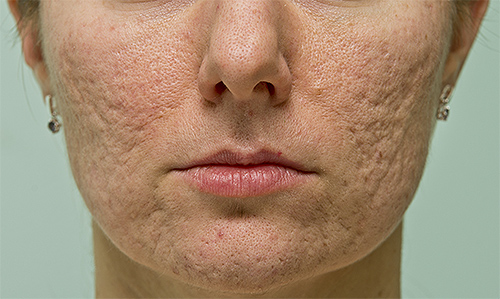


Join The Discussion